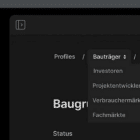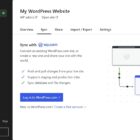Today is International Women’s Day! We’d like to celebrate it by highlighting gender balance and how important it is to us here at Automattic. While gender balance in itself is definitely something worth pursuing for ethical reasons, we also strongly believe that it makes good business sense.
As our CEO Matt Mullenweg said in his recent TED talk, we believe that talent and intelligence are equally distributed throughout the world, but that opportunity is not. As a distributed company with 850+ people in over 69 countries, we’ve seen that the world is pretty big, and that talent and intelligence are definitely not limited by geography, race, gender, or sexual orientation.
Being a distributed company gives us the opportunity to hire talented people like Valentina, a team lead in Spain who uses smart scheduling to have a high impact with her team at work and with her family at home. If we had a more traditional work setup requiring staff to come into brick and mortar offices every day, we would likely miss out on valuable contributions from people like Val.
Another great example of diversity making better business sense for us is Khyati, a Happiness Engineer in Mumbai, India. If we only hired in the US, we would not have the benefit of Khyati’s understanding of the needs of users in her part of the world, and we would also need to require overnight shifts from staff in North America to support those same users.
While the benefits of a distributed workforce are clear, the path to getting there is less so. Most traditional recruiting methods like job boards, career fairs, and recruiting agencies are focused on specific locations. How do you get the word out that you’re looking to hire… all over the world?
Recruiting additional support staff to work with our customers in the Asia-Pacific region has been a high priority for several years. This has led us to holding events in person in select cities and advertising on regional job boards like Seek in Australia and Jobstreet in the Philippines. We were surprised to find that as we increased our recruiting, the rate of applications from women in the region was actually dropping over time. It’s not that fewer women were applying overall, but as awareness of the position grew, many more men than women were learning about the job and submitting applications.
We realized that if we wanted to hire staff with a gender balance that reflects our customers, we’d need to actively reach out to women in this region. We did this though Workshops for Women that we held in person over 2018 in India and Singapore. For 2019 we decided to go virtual and offer an online course for women in the region to level up in their WordPress troubleshooting and customer support skills. In partnership with Support Driven, Automattic offered a six-week course on user support. We enrolled 24 women in our pilot version of the course, which just finished its initial run.
Automattic is committed to diversity and inclusion in our approach to gender balance. This tweet sums up why both are important:
Why isn’t recruiting for diversity enough? What does inclusion even mean?
The typical entrepreneur is a white male in his 30s from a wealthy background, according to entrepreneur.com. As small companies grow, founders are likely to build their teams by recruiting from their personal networks. These networks usually consist of people with similar backgrounds to the founders. Having the longest tenure, these same initial hires are the people who take on leadership roles and make decisions about product development, company culture, and who else to hire. The result is that even when companies genuinely want to attract diverse talent, the company’s top leadership has already been established from a group of very similar people. The true benefits of a diverse workforce can’t be achieved without the contributions of diverse staff at every level.
It’s clear then that hiring is only part of the D&I picture. While we’re always working on recruiting a workforce that reflects the diversity of our global user base, we are also keen on creating equal opportunities for career advancement internally. As a part of these efforts, we took inspiration from Laura Hogan’s fantastic post on sponsorship, and recently set up an internal sponsorship program that matched senior female Happiness Engineers from across the division, with junior counterparts in Asia. As our hiring efforts in Asia only scaled up in the last few years, many of our colleagues there do not have women in their immediate leadership.
This sponsorship program gives less-tenured women frequent access to women in leadership and other senior positions within our Happiness division, so they can see first-hand what it’s like being a leader. This sponsorship program aligns with our belief that representation matters — if you see someone like you in a position of leadership, you are more likely to feel empowered to work towards that same position yourself.
We are indeed entering an exciting period of history where the world expects balance, and as one of the largest distributed companies around, we are proud to be leading the way in creating the workplace of tomorrow, a workplace that is better balanced by default. We’re always looking for more great people to join our team. Check out all of our open positions here!




